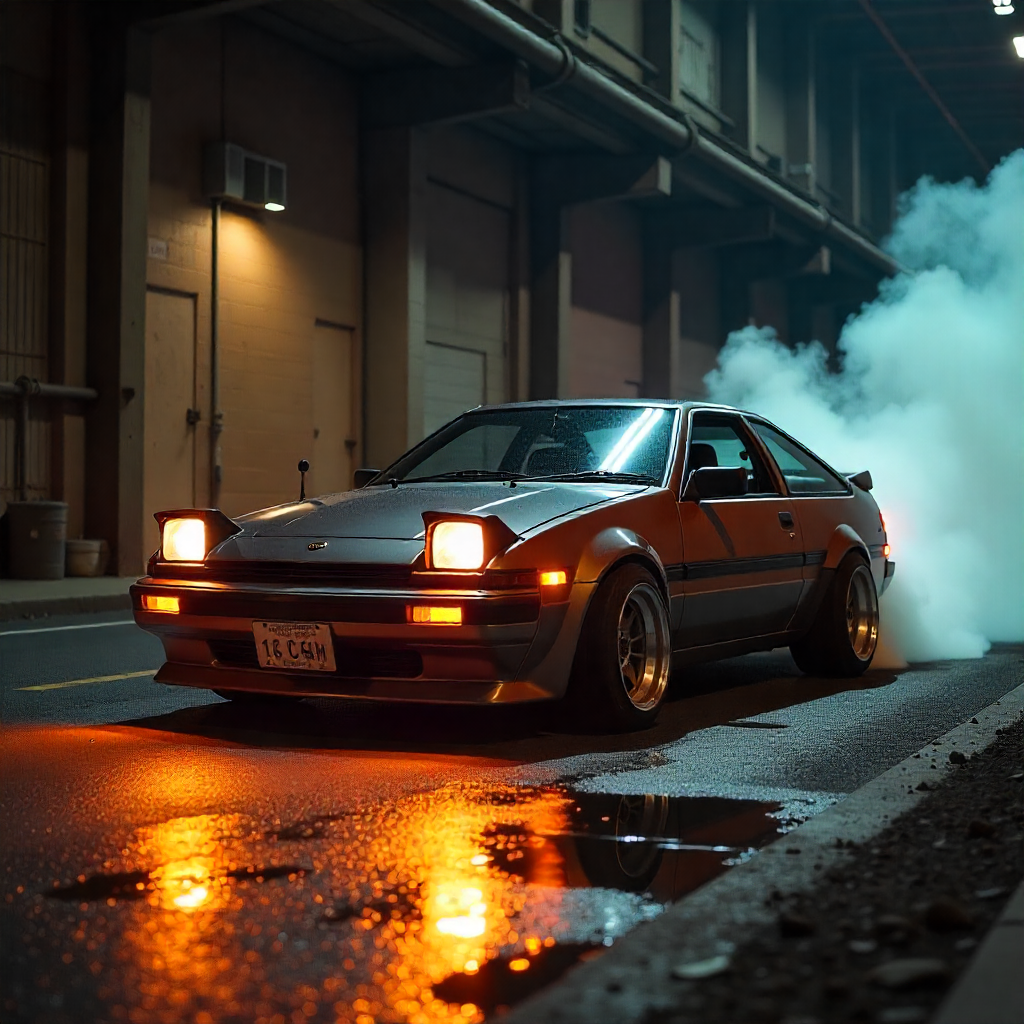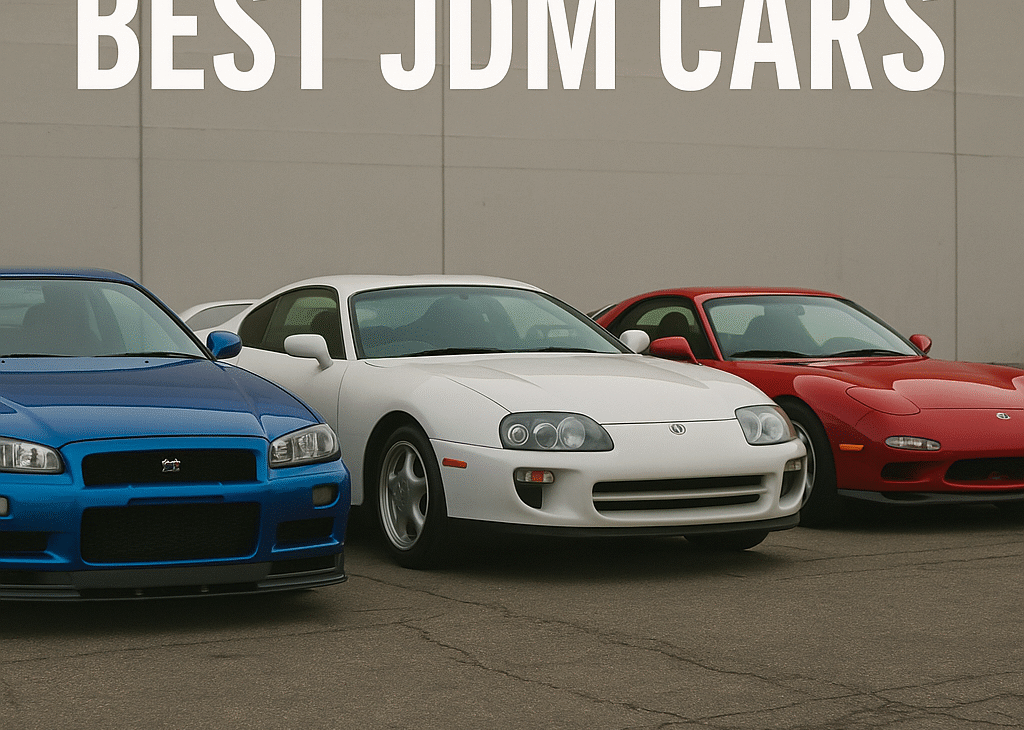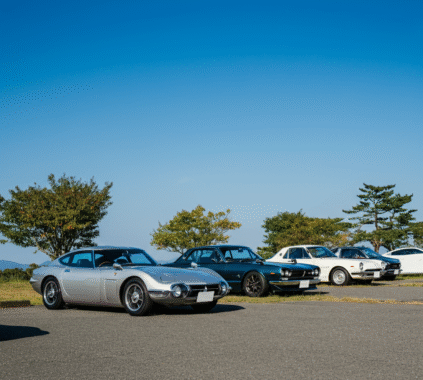Introduction to the World of JDM Cars
JDM isn’t just a buzzword in the car world—it’s a passion. It stands for Japanese Domestic Market, and it refers to vehicles that were originally built and sold exclusively in Japan. These cars weren’t meant for the U.S. or Europe, but thanks to their incredible performance, unique styling, and deep-rooted tuning potential, the world took notice.
Whether you’re a die-hard tuner, a collector, or someone just getting into car culture, JDM cars offer something special.

What Does JDM Mean?
Simply put, JDM refers to vehicles manufactured in Japan specifically for the Japanese market. These cars often feature different engines, trim levels, or tech from their international counterparts.
Why JDM Cars Are So Popular Worldwide
JDM cars are celebrated for:
- Reliability
- Mod-ability
- Distinct styling
- Performance-focused engineering
They offer a perfect blend of practicality and thrill—plus, many were featured in games like Gran Turismo or movies like Fast & Furious.
The Cultural Significance of JDM Vehicles
JDM isn’t just about the cars—it’s about community, tuning culture, and a DIY spirit. The scene grew in the backstreets of Japan with underground drift events and late-night expressway runs. That rebellious, grassroots energy spread across the world.
Legendary JDM Cars That Made History
Nissan Skyline GT-R (R32, R33, R34)
The GT-R earned the nickname “Godzilla” for a reason. Starting with the R32, Nissan’s engineering mastery shined through its RB26DETT engine, advanced AWD system, and insane tunability.
The R34? Arguably the most loved GT-R ever—thanks to both performance and pop culture fame.
Toyota Supra MK4 (A80)
The 2JZ-GTE engine under the hood of the A80 Supra is legendary. Known for its reliability and power potential, this car can handle 1,000+ HP with the right upgrades. It’s a drag strip hero, a street monster, and an icon in every garage dream.
Mazda RX-7 (FD3S)
With its rotary engine, balanced chassis, and stunning looks, the RX-7 is a car that demands respect. It’s a favorite among drifters, tuners, and purists who love high-revving engines and sharp handling.
Honda NSX (NA1/NA2)
Developed with input from Ayrton Senna, the NSX was Japan’s answer to Ferrari—only more reliable. A mid-engine layout, lightweight body, and naturally aspirated V6 made it a supercar you could drive every day.
Mitsubishi Lancer Evolution Series
From the Evo I to Evo X, these AWD turbocharged sedans were built for rally stages and weekend warriors. The Evo IX is especially loved for its aggressive styling and tuning potential.
Subaru Impreza WRX STI
Another rally-bred beast, the STI has always been about raw power, aggressive AWD grip, and a boxer engine growl that you’ll never forget.
Affordable JDM Cars That Pack a Punch
Honda Civic EG/EK
Lightweight, responsive, and affordable—the Civic made performance accessible. With endless aftermarket support, it’s a tuner’s playground.
Nissan Silvia S13/S14/S15
These RWD coupes are drift legends. Their SR20DET engines and perfect balance made them the go-to cars for sideways fun.
Toyota MR2 SW20
Mid-engine, turbocharged, and razor-sharp handling—the MR2 was an underdog that still wins hearts today.
Mazda Miata (MX-5)
“Miata is always the answer.” Light, fun, and reliable, the Miata embodies pure driving joy. It’s a JDM icon loved around the world.
Modern JDM Cars Keeping the Culture Alive
Nissan Z (RZ34)
The new Z car brings twin-turbo power and retro-modern styling, honoring the Z lineage while pushing it forward.
Toyota GR Supra
Co-developed with BMW, the new Supra keeps the spirit alive with strong performance, bold design, and global appeal.
Honda Civic Type R (FL5)
Still FWD. Still turbocharged. Still a track weapon. The latest Type R is faster and sharper than ever.
Toyota GR Yaris
A homologation rally car in disguise. The GR Yaris has a turbo 3-cylinder, AWD, and a massive cult following already.
What Makes a Car Truly “JDM”?
Built for the Japanese Market
It’s not just where it’s made—it’s who it’s made for. JDM models often include features like:
- Right-hand drive
- Higher-spec engines
- Unique trims & interiors
Differences Between JDM and International Versions
Think Skyline GT-R vs. Infiniti G35, or JDM Integra Type R vs. USDM Acura Integra—the differences can be huge in terms of performance, weight, and options.
Importing JDM Cars – What You Need to Know
The 25-Year Rule
In the U.S., cars over 25 years old can be legally imported without restrictions. This is why you now see R32s and early Supras on the streets.
Tips for Buying and Importing Safely
- Work with trusted importers
- Get a full inspection report
- Check for rust and accident history
- Be prepared for registration paperwork
Conclusion – The Timeless Allure of JDM Legends
JDM cars represent more than just horsepower and specs. They carry stories, culture, and soul. From the streets of Tokyo to garages worldwide, their legacy lives on. Whether you’re after the raw power of a GT-R or the balanced thrill of a Miata, there’s a JDM legend waiting for you.
FAQs
1. What does JDM stand for?
JDM means Japanese Domestic Market, referring to vehicles and parts designed specifically for Japan.
2. Can I import a JDM car legally?
Yes! In many countries like the U.S., you can import vehicles that are 25 years or older.
3. What is the most iconic JDM car?
The Nissan Skyline GT-R (R34) and Toyota Supra MK4 are two of the most iconic JDM cars ever made.
4. Are JDM cars reliable?
Absolutely. Many are built with high-quality engineering and are known for their longevity, especially when maintained properly.
5. What’s a good starter JDM car?
The Honda Civic EG/EK, Mazda Miata, and Nissan Silvia are great entry points due to price, parts availability, and mod potential.













